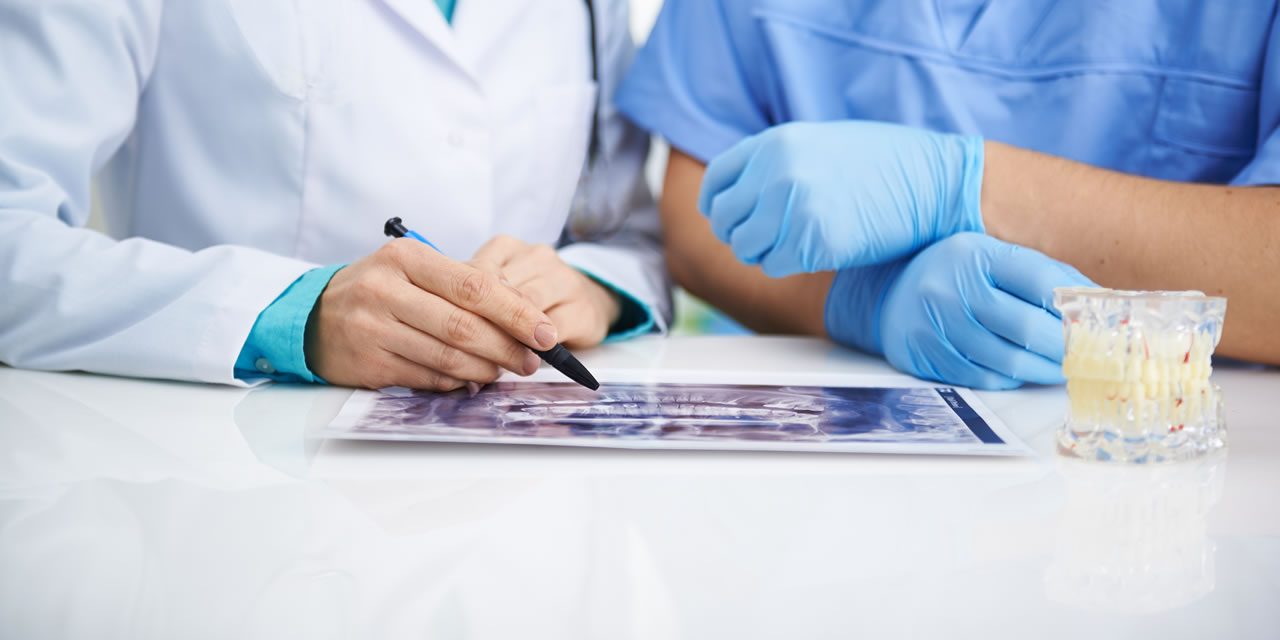
Detection of Oral Mucosal Abnormalities
The VELscope system is a non-invasive tool that uses natural tissue fluorescence to help dentists diagnose problems or diseases in the soft tissues of the mouth. The VELscope is often used as a tool for oral cancer screenings at dental offices.
The VELscope VX Enhanced Oral Assessment System uses natural tissue fluorescence to detect mucosal abnormalities in the mouth that cannot be seen with the naked eye. In particular, it can be used to detect oral cancer.
What is a VELscope?
The VELscope provides dentists with full visualization of oral mucosal abnormalities, including oral cancers. The technology can reveal issues that can’t be seen under normal white light.
Although very useful, a VELscope is a very simple tool. A bright blue light is shone into the mouth, and the refracted wavelengths can indicate abnormalities. Typically, the healthy soft tissue in the mouth absorbs the light, whereas unhealthy areas will stand out.
Detecting Oral Cancer
Early detection of oral cancer can make all the difference. Oral cancer responds better to treatment when it is in the early stages, which can mean life or death for patients.
VELscope technology is designed to show cancerous and precancerous changes to the soft tissue of the mouth using fluorescence. It can often detect cancer in the early stages, which may increase a patient’s chances of survival.
What to Expect from a VELscope Examination
Some dentists may use a VELscope during a routine oral exam to screen for oral cancer. VELscope examinations are very quick, painless, and non-invasive.
VELscopes are known as adjunctive devices. This means that in order to be effective, the technology needs to be combined with a visual examination of the soft tissues of the mouth, neck, and head.
After the visual examination, your dentist will project blue light into your mouth from the VELscope. The VELscope is a small handheld scope that does not enter the mouth physically. By looking around at the different wavelengths of light, your dentist can detect any lesions or abnormalities that may indicate cancerous or precancerous cells.
Keep in mind that the test is not conclusive; your dentist will need to interpret the results of the test. If your dentist has concerns, he or she may order a biopsy to have the areas of concern tested for cancer.
Oral Cancer Risk Factors
Caring for your oral health by instilling healthy habits can help prevent the development of oral cancers.
Although not all oral cancers are related to smoking tobacco products or drinking alcohol, these remain two of the main risk factors. Combining frequent and heavy drinking with tobacco use can further increase the risk of contracting oral cancers.
Other risk factors for oral cancer may include:
- Contraction of human papillomavirus (HPV16)
- A compromised or weakened immune system
- Frequent or excessive sun exposure to the lips
- A history of cancer
- Poor oral health
Although oral cancer cannot be prevented, quitting unhealthy habits and maintaining good oral hygiene can reduce the risk.
Find a Local Dentist
The 123Dentist network of dental professionals offers dental imaging services across Canada. Search our network to find your nearest dentist.
